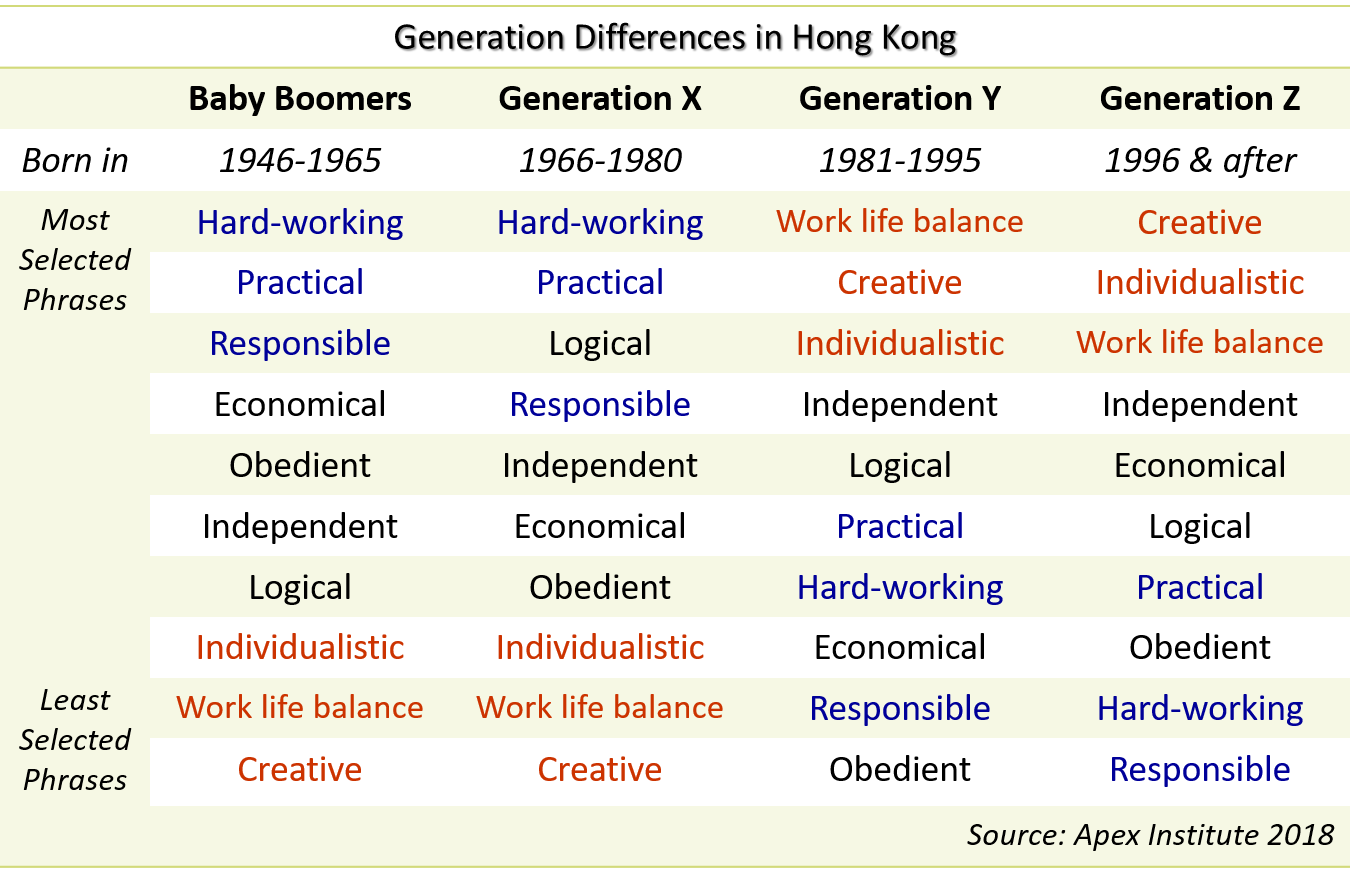Article: Generation Differences in Hong Kong

Dr. Joseph Wong
Principal Consultant | Apex Insitute
How would you describe the Post 80s and Post 90s? In a study to understand the generation differences in Hong Kong, we have asked 526 respondents to pick three phrases to describe each generation, and the following are the results.
- Baby Boomers (born 1946-1965): Hard-working, Practical, Responsible
- Generation X (born 1966-1980): Hard-working, Practical, Logical
- Generation Y (born 1981-1995): Work-life balance, Creative, Individualistic
- Generation Z (born 1996 and after): Creative, Individualistic, Work-life balance
- Baby Boomers (born 1946-1965): Creative, Work-life balance, Individualistic
- Generation X (born 1966-1980): Creative, Work-life balance, Individualistic
- Generation Y (born 1981-1995): Obedient, Responsible, Economical
- Generation Z (born 1996 and after): Responsible, Hard-working, Obedient

From the results, the four generations of Hong Kong people can be grouped into two big generation groups:
- The Pre-80s (including the Baby Boomers and Gen X) who are hard-working, practical and responsible (the fourth most selected for Gen X), not so creative, not looking for work-life balance and not so individualistic, and
- The Post-80s (including the Gen Y and Gen Z) who are creative, looking for work-life balance and individualistic, not so obedient, not so responsible and not so hard-working (the fourth least selected for Gen Y)
More interesting is that, the most representative characteristics of the Pre-80s are the least representative characteristics of the Post-80s, and vice versa, the most representative characteristics of Post-80s are the least representative characteristics of the Pre-80s. This is in line with our observations about the tensions between these two generation groups. What makes the situation more severe is that how a generation group perceives oneself is very different from how another generation group perceives it.
I will discuss this in the next post.




